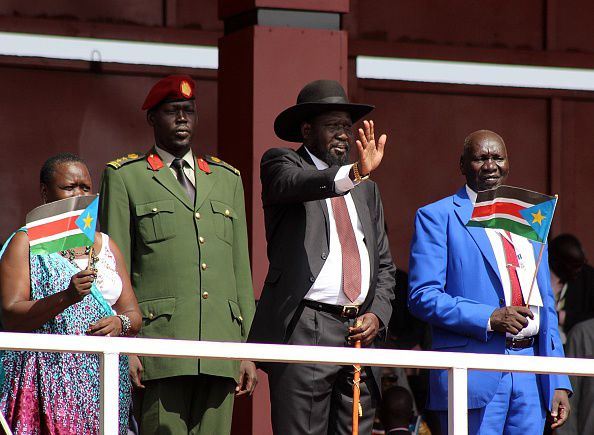Dok: Analysis of South Sudan National Dialogue

Salva Kiir, President of South Sudan
June 18, 2017
Editor’s note: Akol Dok is a recent graduate of Iowa State University. He will be contributing to the opinion page through letters on South Sudan, his home country, to educate Americans on daily realities in other parts of the world.
South Sudan president, Salva Kiir launched the National Dialogue with the intent of peacefully ending the ongoing conflict and addressing problems facing the country.
The National Dialogue includes an open forum where citizens affected by the war may speak about problems they are facing and solutions to them. The launch included a 93 member steering committee which was recently sworn in and tasked with leading the dialogue.
The word dialogue means “an exchange of ideas or opinions on a particular issue, especially a political or religious issue, with a view to reaching an amicable agreement or settlement.”
The National Dialogue must have an objective of bringing major warring parties together and seek a lasting resolution to the conflict.
Key elements are needed for the success of the National Dialogue: silent majority, victims of the war including refugees and internally displaced people, and the belligerents: the government and the rebels. The objective is to end the war in South Sudan, bring lasting peace and stability, promote unity amongst civilians, and set forth a political roadmap for democracy.
Dialogue won’t be successful unless fighting has ended. Rebel groups must stop fighting and be invited and given the opportunity to speak on why they are taking arms and creating insecurity. The government clearly disagrees with the rebels but they are the ones fighting and their participation is paramount for cession of hostilities.
The public forum will allow factions to publicly speak permitting citizens the opportunity to determine the legitimacy of their arguments. Both rebel and government must address the root causes of the conflict and what led to violence.
The citizens must be provided the opportunity to discuss fundamental issues they are facing as a result of the war including: loss of property, economic issues, rape and human rights violations, losing family members and being forced to flee their homes.
This political division has created social division amongst civilians in the country, hatred amongst ethnic groups must be addressed and strongly discouraged and nationalism and unity must be promoted.
Civilians must feel comfortable in their own nation and with their neighbors regardless of ethnic group, tribe or other differences.
The political process must include a roadmap to democracy as elections are the universally accepted way to obtain power in a nation. South Sudan is a republic and must hold political elections to determine who will hold various political posts.
South Sudanese must renounce bad leadership and elect leaders they believe are capable of addressing the problems they face. Democracy will put power into the hands of the citizens allowing them to vote and peacefully remove bad leaders, avoiding war and chaos.
South Sudan must abandon a culture of militarism and violence for political dialogue and nonviolent resistance. The culture of militarism allows the military to play a vital role in politics hindering democracy and the establishment of political institutions. The objective of the military is to serve, protect and defend the people of South Sudan and has no role in politics. Militarism has created a perpetual cycle of generational violence where disgruntled citizens take up arm and use violence as means to achieve their objectives resulting in chaos, death, and instability.
Disgruntled citizens have a right to have their grievances heard and given the opportunity to peaceful address problems they are facing and solutions to those problems.
The National Dialogue has been praised and criticized but has the potential to serve as a venue that ends the South Sudan civil war and address major problems facing South Sudanese. The National Dialogue must be taken very seriously and the drivers of it must put the interest of South Sudan before anything else.
















